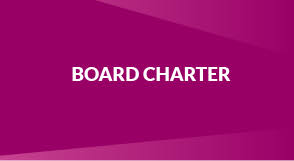Training Course on Designing Board Structures and Board Charters
The "Designing Board Structures and Board Charters Training Course" is designed to equip professionals with the knowledge and skills necessary to develop effective governance frameworks for organizations.

Course Overview
Designing Board Structures and Board Charters Training Course
Effective governance requires well-defined board structures and comprehensive board charters that outline roles, responsibilities, and processes. The "Designing Board Structures and Board Charters Training Course" is designed to equip professionals with the knowledge and skills necessary to develop effective governance frameworks for organizations. This comprehensive training program provides insights into best practices, regulatory requirements, and strategic design principles.
In this course, participants will explore the principles of board design, gaining an understanding of how to create structures that promote accountability, transparency, and effectiveness. Emphasis is placed on stakeholder engagement, compliance, and the evaluation of board performance. Through practical applications and real-world case studies, attendees will learn how to draft board charters and establish governance frameworks. This hands-on approach ensures that participants can apply theoretical concepts in practical settings, enhancing their organizations' governance capabilities.
Course Objectives
- Understand the importance of effective board structures and charters.
- Identify key components of board design and governance.
- Develop comprehensive board charters.
- Assess the effectiveness of existing board structures.
- Navigate regulatory frameworks related to board governance.
- Engage stakeholders in the governance design process.
- Implement best practices for board performance evaluation.
- Promote accountability and transparency in board operations.
- Analyze case studies of effective board structures and charters.
- Foster collaboration among board members and stakeholders.
- Develop action plans for enhancing board governance.
- Encourage continuous improvement in governance practices.
Target Audience
- Board Members
- Corporate Executives
- Governance Professionals
- Compliance Officers
- Policy Makers
- Academics and Researchers
- Consultants
Course Duration: 10 Days
Course Modules
Module 1: Introduction to Board Governance
- Overview of board governance concepts and principles.
- Historical context of board structures in various sectors.
- Types of boards and their purposes.
- Key roles and responsibilities of board members.
- Case studies of effective board governance.
Module 2: Principles of Effective Board Design
- Understanding the characteristics of effective boards.
- Identifying the components of board structure.
- Aligning board design with organizational strategy.
- Assessing the impact of culture on board effectiveness.
- Best practices for board diversity and inclusion.
Module 3: Regulatory Frameworks for Board Governance
- Overview of local, national, and international governance regulations.
- Understanding compliance requirements for boards.
- Analyzing the role of regulatory bodies in board oversight.
- Developing policies to ensure adherence to regulations.
- Implications of non-compliance for organizations.
Module 4: Developing a Comprehensive Board Charter
- Defining the purpose and scope of a board charter.
- Key elements to include in a board charter.
- Drafting guidelines for effective charter development.
- Establishing roles, responsibilities, and authority in the charter.
- Reviewing and revising board charters regularly.
Module 5: Stakeholder Engagement in Board Design
- Identifying key stakeholders in the governance process.
- Techniques for effective stakeholder communication.
- Facilitating consultations with stakeholders.
- Building consensus around board design and governance issues.
- Managing stakeholder expectations and feedback.
Module 6: Roles and Responsibilities of Board Members
- Understanding individual roles within the board.
- Defining committee structures and their functions.
- Clarifying the relationship between board members and management.
- Developing protocols for conflict of interest and ethical behavior.
- Evaluating the performance of board members.
Module 7: Best Practices for Board Performance Evaluation
- Establishing performance metrics for boards.
- Techniques for conducting self-assessments and peer evaluations.
- Analyzing feedback and implementing improvements.
- Developing a culture of accountability within the board.
- Case studies of effective board performance evaluations.
Module 8: Risk Management and Oversight
- Understanding the board's role in risk governance.
- Identifying key risks facing organizations.
- Developing risk management frameworks and policies.
- Ensuring compliance with risk management regulations.
- Analyzing case studies of risk oversight failures.
Module 9: Communication and Reporting Protocols
- Developing effective communication strategies for boards.
- Establishing reporting lines and information flow.
- Techniques for presenting information to the board.
- Engaging with external stakeholders and the public.
- Evaluating the effectiveness of communication practices.
Module 10: Building a Collaborative Board Culture
- Promoting teamwork and collaboration among board members.
- Techniques for resolving conflicts and fostering dialogue.
- Encouraging diverse perspectives in decision-making.
- Developing a shared vision and mission for the board.
- Best practices for facilitating board meetings.
Module 11: Action Planning for Governance Improvement
- Developing action plans to enhance board structures and charters.
- Setting priorities and timelines for implementation.
- Communicating the benefits of governance improvements to stakeholders.
- Monitoring and evaluating the impact of changes.
- Fostering a culture of continuous governance improvement.
Module 12: Future Trends in Board Governance
- Exploring emerging trends in corporate governance.
- Analyzing the impact of technology on board practices.
- Understanding the role of sustainability and social responsibility.
- Preparing for changes in regulatory environments.